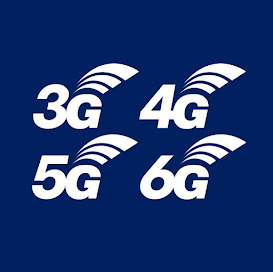 Vodafone announced that it is to become a member of the WiMAX Forum, the organisation which tests and certifies interoperability for products based on the WiMAX standards. Vodafone sees the move as a means of taking a more technology-neutral approach to the future development of its business, by placing WiMAX on a strategic par with 3G LTE for a potential role in the next generation of mobile technology. Although mobile WiMAX is less mature than LTE at present, Vodafone believes it may have an important role to play for some of its national operating companies. Vodafone therefore wants to understand WiMAX better, and to play an active role in developing end-to-end specifications for possible future deployment.
Vodafone announced that it is to become a member of the WiMAX Forum, the organisation which tests and certifies interoperability for products based on the WiMAX standards. Vodafone sees the move as a means of taking a more technology-neutral approach to the future development of its business, by placing WiMAX on a strategic par with 3G LTE for a potential role in the next generation of mobile technology. Although mobile WiMAX is less mature than LTE at present, Vodafone believes it may have an important role to play for some of its national operating companies. Vodafone therefore wants to understand WiMAX better, and to play an active role in developing end-to-end specifications for possible future deployment.WiMAX standard is often compared to Wi-Fi, though the comparison is unfair as WiMAX isn't based on a 20-year-old wired standard but was designed for wireless use (at least, the bits not borrowed from DOCSIS were). WiMAX offers greater speed and range than Wi-Fi, but most importantly it offers quality of service guarantees that make VoIP and streaming applications easier to manage.
"Our membership of the WiMAX Forum will complement our existing memberships of other key industry bodies such as the GSMA, 3GPP, and the Next Generation Mobile Network initiative," Vodafone global chief technology officer Steve Pusey said.
WiMAX has been heavily pushed by Intel, which intends to build it into laptop chipsets, encouraging rapid adoption of a technology in which it owns key intellectual property.
According to Ovum analysis:
Although a slightly crude generalisation, it's basically accurate to see the WiMAX Forum as the wireless Internet camp; the 3GPP as the wireless telecoms camp. There was a time when those two camps represented philosophies which were mutually exclusive and frequently antagonistic. These days, it makes less sense to see the world in those terms, because convergence between telecoms and the Internet - though far from complete - is now well under way. But at this early phase of the transition to convergence, it's not yet clear whether the predominant technologies and business models will eventually be those of telecoms, or those of the Internet. It's sensible, therefore, to remain interested in (and influential over) both possible outcomes, so long as they both remain possible.


No comments:
Post a Comment